College of Science faculty and staff recognized at 2024 Galileo Circle Awards
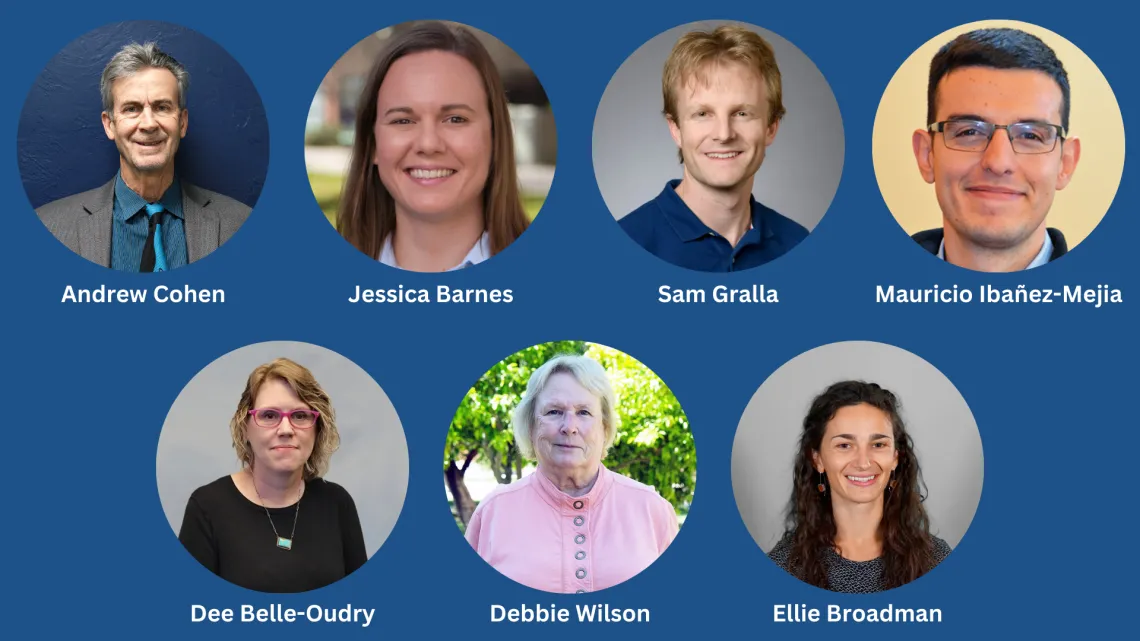
The College of Science recently recognized its 2024 Galileo Circle Awards recipients. These awards recognize some of the college's most exceptional faculty and staff and are one of the highest honors the college can bestow. The Galileo Circle Awards are made possible by the generosity of our Galileo Circle members.
At the annual Galileo Circle Awards Dinner on Thursday, April 25, 2024, College of Science Dean Carmala Garzione and members of the CoS administration will recognize the awardees and the Galileo Circle members who greatly support their efforts. Here are the award recipients:
Galileo Circle Fellows
Fellows are the College's most distinguished faculty. They have a deep understanding of a broad range of science, a willingness to think in a truly interdisciplinary way, and an ability to inspire colleagues and students alive.
Andrew Cohen
Distinguished Professor of Geosciences and Joint Professor of Ecology and Evolutionary Biology
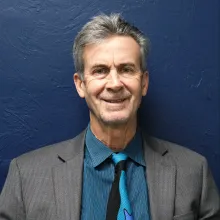
Dr. Andrew Cohen received his bachelor’s degree from Middlebury College, and his doctoral degree from UC Davis. He was an Assistant Professor in Geology at Colorado College prior to beginning his tenure at the University of Arizona as an Assistant Professor in 1986. He was promoted to Associate Professor in 1990 and then to full Professor in 1995. Between 2019 and 2022, he also served as the Associate Department Head of Geosciences. In 2014, Dr. Cohen was awarded the University of Arizona Distinguished Professor Award for his exemplary contributions to research, teaching, and mentoring at the University of Arizona.
Dr. Cohen’s research interests are in paleolimnology, the study of lake deposits for reconstructing past lake ecosystems, environmental change, and paleoecology. For most of his career he has focused on understanding the ecosystem histories of both modern and now-extinct lakes in the African Rift Valley and in western North America. He is a leader in the application of Continental Scientific Drilling for obtaining long (hundreds of meters) drill cores from large, ancient lakes to obtain records of past climate and the evolution of species and biological communities in lakes. He is the author of “Paleolimnology: History and Evolution of Lake Systems” (Oxford U. Press), the leading text-reference book in this field. Dr. Cohen is a Fellow of the American Geophysical Union and the Geological Society of America.
Galileo Circle Curie Award
The Curie Award was created for rising stars among junior tenure-track faculty in the College of Science. Their innovative work advances science and adds diversity within the scientific community.
Jessica Barnes
Assistant Professor, Lunar and Planetary Laboratory
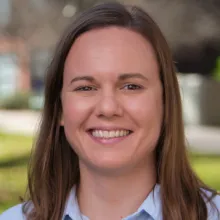
Dr. Jessica Barnes obtained her doctoral degree in Planetary and Space Sciences from The Open University and The Natural History Museum London, UK. Her doctoral work focused on measuring water in Apollo samples to better understand the accretion history and magmatic evolution of the Moon. Dr. Barnes joined the University of Arizona faculty as an Assistant Professor in 2019, after holding a position as a postdoctoral fellow at NASA’s Johnson Space Center.
Her research centers on understanding the origin and evolution of volatiles in the inner Solar System. She utilizes a combination of electron microscopy and high-resolution secondary ion mass spectrometry to study extraterrestrial materials. Her research background is in lunar mineralogy and geochemistry. She is a Co-Investigator on NASA’s Origins, Spectral Interpretation, Resource Identification, Security, Regolith Explorer (OSIRIS-REx) space mission. One of the mission goals is to return 60 grams of material from asteroid Bennu in September 2023. She is the Lead Scientist for the Sample Elements and Isotopes Working Group and will be analyzing the returned materials to unravel the geological history of Bennu and the origins of the solar system.
--
Sam Gralla
Associate Professor, Physics
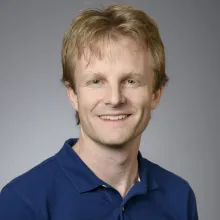
Dr. Sam Gralla earned his doctoral degree from the University of Chicago in 2011 and held postdoctoral appointments at Maryland and Harvard before joining the University of Arizona faculty in Fall 2015. He is a theorist working in gravitational physics and relativistic astrophysics, focusing on black holes and neutron stars.
His research spans fundamental theory, astrophysical modeling, and data analysis. He is the recipient of an NSF CAREER award as well as the 2018 Young Scientist Prize in General Relativity and Gravitation, awarded by the International Union of Pure and Applied Physics. His recent interests have included the two-body problem in general relativity, electromagnetic and gravitational self-force effects on the motion of bodies, strong-field plasmas and quantum-electrodynamical corrections, and physics near rapidly rotating black holes. Dr. Gralla is widely known as an effective teacher and public speaker who reaches a global audience online through education and outreach content uploaded to YouTube.
--
Mauricio Ibañez-Mejia
Assistant Professor, Geosciences
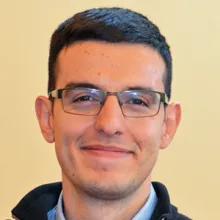
Dr. Mauricio Ibañez-Mejia earned his bachelor’s degree in Geology at the Universidad Nacional de Colombia in Bogotá, Colombia, and his graduate and doctoral degrees in Geosciences at the University of Arizona. Following a two-year W.O. Crosby postdoctoral fellowship at the Massachusetts Institute of Technology and four years as Assistant Professor at the University of Rochester New York, he returned to the University of Arizona to join the faculty in 2021.
Dr. Ibañez-Mejia’s primary scientific interests are the various ways in which isotopes can be used to study the evolution of the Earth. Using a combination of field observations with isotopic analyses of trace metals in rocks and minerals, his research establishes the timing and time scales of geologic events such as the formation of continents, mountain belts, volcanic events and mass extinctions, the evolution of Earth’s magnetic field, and planetary chemical differentiation. He is also co-director of the Arizona Laserchron Center in the department of Geosciences, an NSF-supported facility focused on providing greater access to geochronologic methods and expertise for the Earth science community and leading the development of novel approaches in geochronologic/isotope geochemistry research.
Galileo Circle Copernicus Award
The Copernicus Award recognizes the extraordinary accomplishments of College of Science non-tenure-eligible faculty or staff. The efforts of these individuals significantly advance the mission of their department and the knowledge base of their discipline.
Dee Belle-Oudry
Associate Head for Education & Academic Affairs, Chemistry & Biochemistry
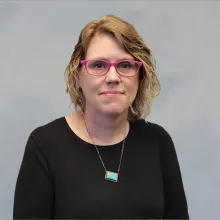
Dr. Dee Belle-Oudry earned a bachelor’s degree from Stony Brook University and a doctoral degree from Cornell University, both in Chemistry. Over the past twenty years she has been involved in the department’s teaching mission, managing and instructing advanced laboratory and safety courses.
Her main teaching interests are chemical analysis and laboratory safety. Dr. Belle-Oudry integrates context-based activities into her teaching to make the subject meaningful and practical to students. She recently developed two advanced safety classes and helped create a Safety Certificate program housed in the College of Public Health. In her administrative role in the Chemistry and Biochemistry department, she oversees various facets of the academic program (advising, assessment, curriculum, budget, schedule) to meet the diverse needs of students served by the department’s courses. She is currently leading a major curriculum reform effort that will result in more flexible, relevant, and modern undergraduate degrees in Chemistry and Biochemistry.
--
Debbie Wilson
Program Manager, James Webb Space Telescope, Astronomy and Steward Observatory
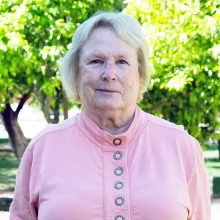
Ms. Debbie Wilson is a Tucson native and earned a bachelor’s degree in Systems Engineering from the University of Arizona. Ms. Wilson is an extraordinary program manager, systems engineer, staff member and leader who has been a critical contributor to the success of the University of Arizona led efforts for the NASA James Webb Space Telescope, the Near Infrared Camera and the Mid Infrared Instrument. She has been in her current role since 2001 for these major contracts totaling over $600M in award value.
Ms. Wilson plays a major role in mentoring many of the department’s junior faculty, managers, engineers, and graduate students involved in the NASA JWST instrument contracts and space missions in general. The department depends on her to help their managers and junior faculty to learn how to be effective leaders and their students and engineers to be effective team members.
Galileo Circle Postdoc Award
The Postdoc Award was created for the substantial and invaluable contributions postdocs make to the research, mentoring, and outreach missions of both the College and University.
Ellie Broadman
Postdoctoral Research Associate, Laboratory of Tree-Ring Research
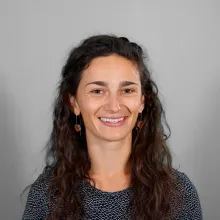
Dr. Ellie Broadman earned a bachelor’s degree in Geography from UC Berkeley and a PhD in Earth Science and Environmental Sustainability from Northern Arizona University. Dr. Broadman is a climate scientist who specializes in reconstructing past climate and environmental change using natural archives, such as lake sediments and tree rings.
While at the Laboratory of Tree-Ring Research, her research has focused on reconstructing past variability in the jet stream, a band of wind high in the atmosphere that influences weather at the Earth’s surface. She has also overseen a project focused on tree-ring evidence for the current “megadrought” in Arizona, with an emphasis on providing a long-term context for recent Salt River flows. For that project, she has collaborated with stakeholders at the Nature Conservancy and the Salt River Project, and participated in the Vertically Integrated Project “Water Whys” to mentor students as they create hydrology-related graphics for mass media.
--
The Galileo Circle is a community of engaged individuals whose support is vital to the continued excellence of the College of Science at the University of Arizona. As a member, you will be supporting established and budding scientists at the College of Science. Your gifts provide crucial scholarship support to outstanding students and facilitate groundbreaking research by our distinguished faculty. The Galileo Circle creates a meaningful connection between our patrons and our scientists. If you would like to learn more about the Galileo Circle and join as a member, please click here.

